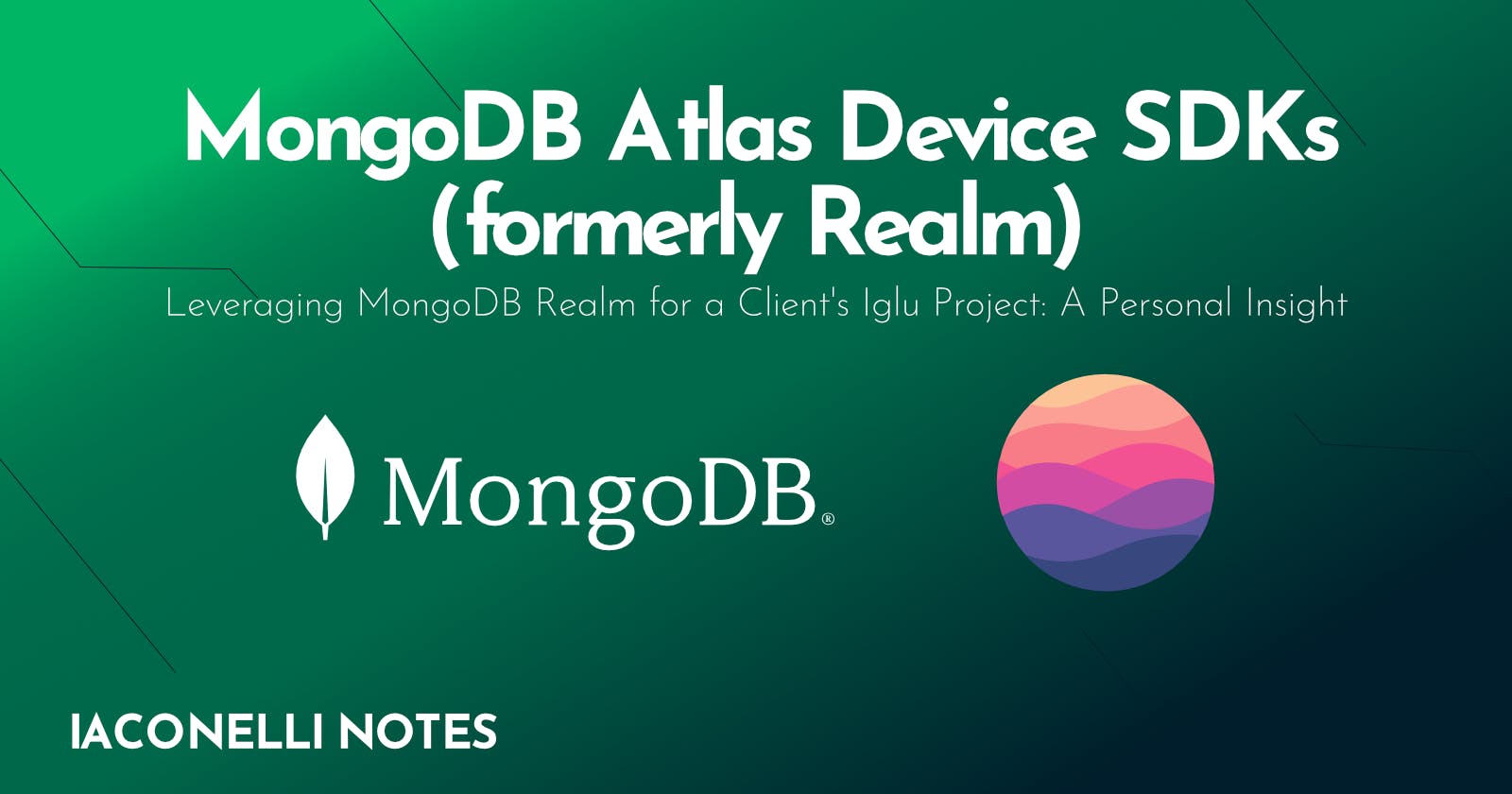MongoDB Atlas Device SDKs (formerly Realm)
Leveraging MongoDB Realm for a Client's Iglu Project: A Personal Insight
Introduction to MongoDB Realm
In the world of application development, MongoDB Realm emerges as a beacon for developers aiming to create applications that are not only responsive but also robust in handling data in real-time and offline scenarios. MongoDB Realm extends beyond a mere mobile database; it is an integrated platform designed to streamline the synchronization between your application's data and the MongoDB database. This synchronization is pivotal for maintaining the application's functionality and ensuring data integrity, even in the absence of an internet connection.
The technology behind MongoDB Realm is engineered to cater to the evolving needs of modern applications, providing seamless real-time updates and the capability for efficient offline data management. With features like FlexibleSync, developers are afforded the flexibility to define specific synchronization criteria, optimizing data transfer and enhancing application performance.
Deep Dive into MongoDB Realm with Flutter Dart
For those venturing into the integration of MongoDB Realm using Flutter Dart, let's explore how FlexibleSync can be effectively utilised. Assuming familiarity with Dart and Flutter, the following example illustrates a basic setup:
import 'package:realm/realm.dart';
void main() async {
// Initialize Realm with your app ID
var app = App(AppConfiguration('your_realm_app_id'));
// Authenticate a user
var user = await app.logIn(Credentials.anonymous());
// Set up FlexibleSync with desired schema
var config = Configuration.flexibleSync(user, [YourModel.schema]);
// Open a Realm instance with FlexibleSync configuration
var realm = Realm(config);
// Execute write transactions as needed
realm.write(() {
realm.add(YourModel(...));
});
// Ensure to close the Realm when no longer in use
realm.close();
}
This snippet showcases the initialization of a Realm application with FlexibleSync in a Dart Flutter environment, facilitating real-time data syncing and offline capabilities.
Iglu's Journey with MongoDB Realm
At Iglu, our commitment to leveraging cutting-edge technologies led us to adopt MongoDB Realm for a client's project that necessitated robust real-time synchronization and offline data management. MongoDB Realm stood out for its ability to ensure data consistency across devices in real-time, a critical feature for our client's application to function seamlessly across varying network conditions.
Throughout our journey, while we uncovered the vast potential of MongoDB Realm, we also navigated through certain challenges. Notably, the schema definition process revealed limitations such as the absence of support for enumerations and complexities in querying nested object fields. These limitations prompted us to seek alternative approaches and solutions, highlighting the need for a more flexible schema design process within MongoDB Realm.
Reflecting on MongoDB Realm's Capabilities and Future Potential
MongoDB Realm undeniably sets a high standard for application development, especially in scenarios requiring real-time data synchronization and offline capabilities. Its transformative impact on user experience and application reliability is evident. However, our experience also underscores areas where MongoDB Realm could evolve, particularly in enhancing schema flexibility and expanding query capabilities for nested objects.
Looking ahead, we believe that MongoDB Realm has the foundation to further its utility and adaptability for developers. Continuous improvements and feature expansions could solidify its position as an indispensable tool in the developer's toolkit.
As we reflect on our journey with MongoDB Realm, we remain optimistic about its future developments and its role in advancing application development. MongoDB Realm not only promises a pathway to creating more dynamic and resilient applications but also challenges us to reimagine the possibilities of real-time and offline data management. 🌐💡🛠
